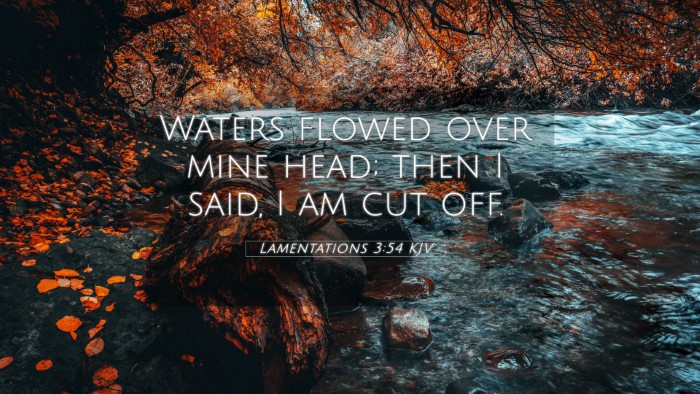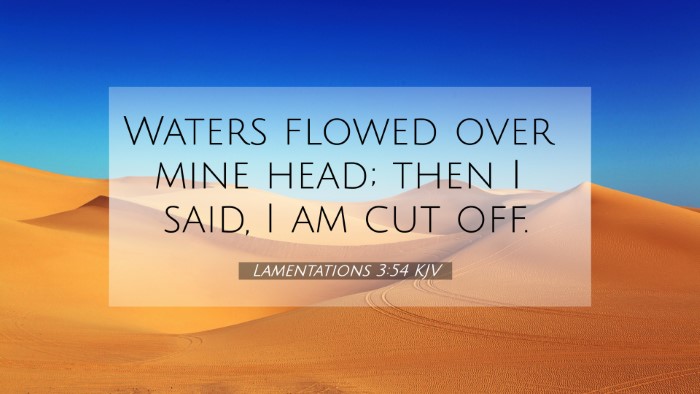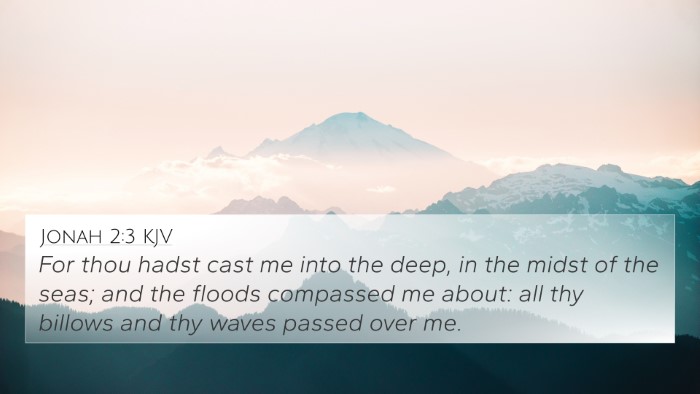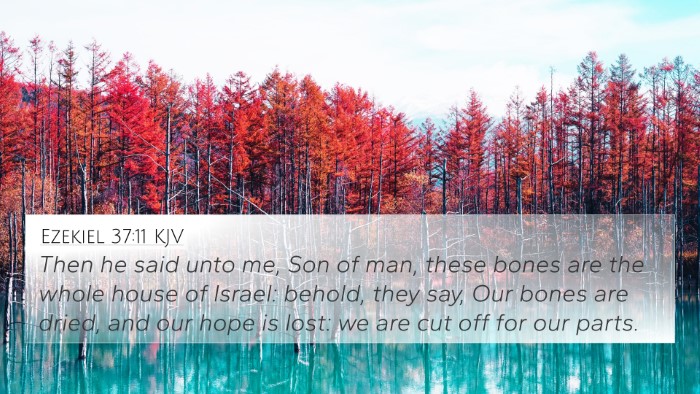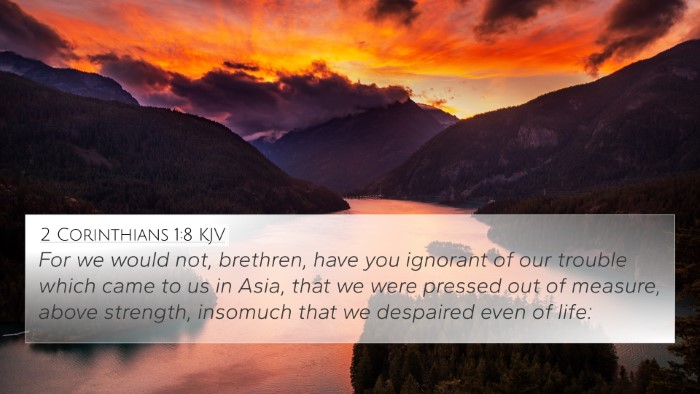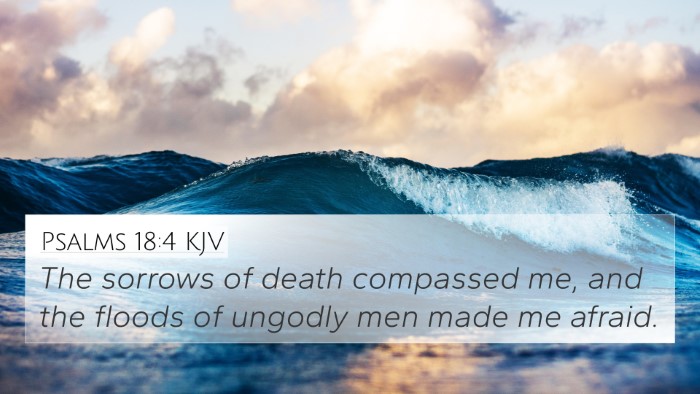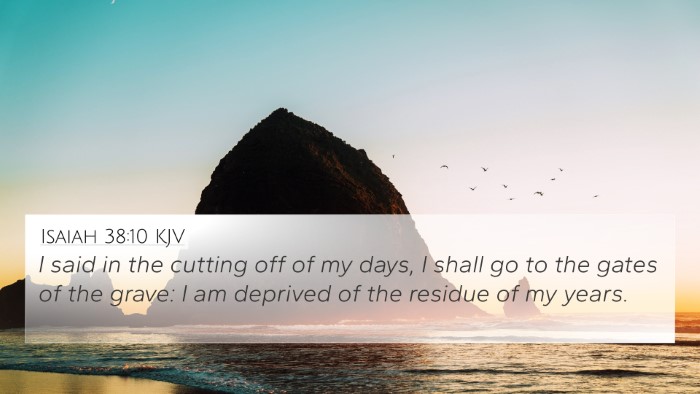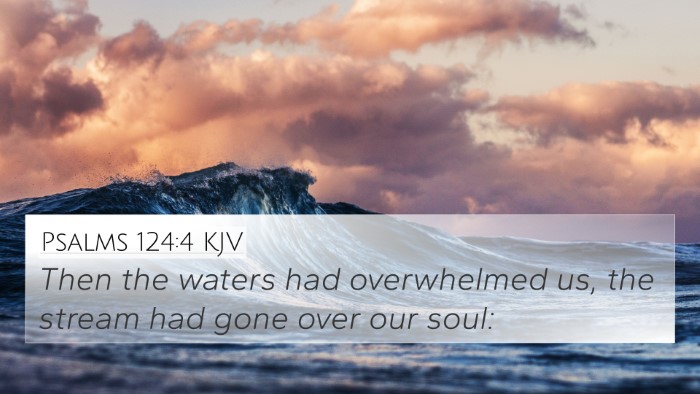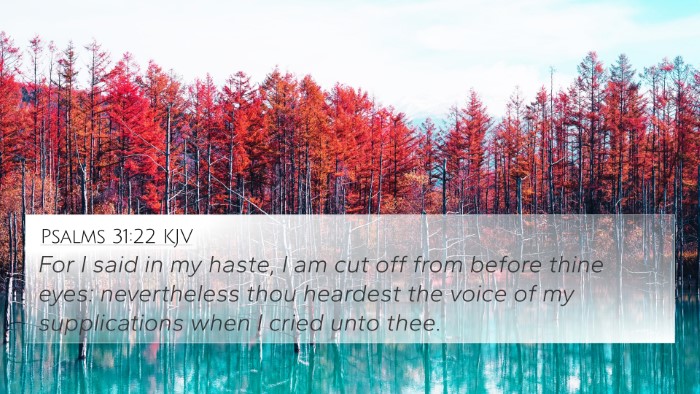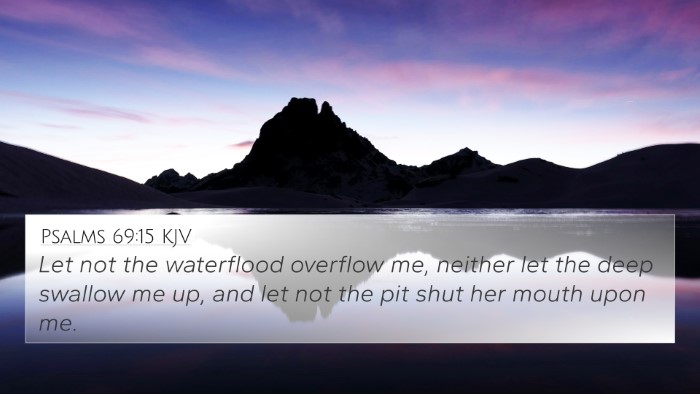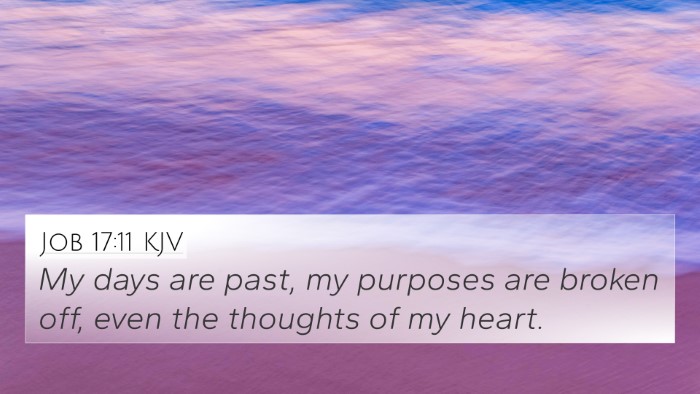Lamentations 3:54 - Analysis and Meaning
Lamentations 3:54 states: "Waters flowed over mine head; then I said, I am cut off." This verse captures a profound sense of despair and hopelessness expressed by the prophet Jeremiah as he laments over the destruction of Jerusalem and the suffering of its people.
Summary of the Verse
This verse elucidates the feeling of being overwhelmed by troubles, akin to being submerged in water. The image of waters flowing over one's head emphasizes the depth of despair, leading to the realization of separation from God. It portrays not just physical suffering but spiritual disconnection, reflecting a deep sense of alienation.
Common Interpretations
- Matthew Henry's Commentary: Henry views this passage as an expression of the depths of Jeremiah's sorrow. The metaphor of water signifies overwhelming affliction, and the declaration of feeling "cut off" indicates a severance from God's favor and mercy.
- Albert Barnes' Notes: Barnes expounds on the emotional state of the individual when beset by trials. He notes that the reference to being "cut off" highlights a profound sense of isolation, emphasizing the need for divine intervention and comfort.
- Adam Clarke's Commentary: Clarke reflects on the lamentation as an expression of despair, suggesting that the waters represent not only physical suffering but also the trials faced by the Jewish people during the calamities they endured. He emphasizes that this feeling of being cut off denotes spiritual abandonment.
Thematic Connections and Cross-References
Understanding Lamentations 3:54 involves connecting it with various other scriptural references that illuminate its themes of despair, suffering, and spiritual alienation. The following verses can be seen as relevant:
- Psalm 69:1-2: "Save me, O God; for the waters are come in unto my soul. I sink in deep mire, where there is no standing." This Psalm reflects similar sentiments of being overwhelmed.
- Psalm 88:14: "O Lord, why castest thou off my soul? why hidest thou thy face from me?" Here, the sense of abandonment resonates with Jeremiah's experience of being cut off.
- Job 30:20: "I cry unto thee, and thou dost not hear: I stand up, and thou regardest me not." Job expresses feelings of being ignored by God amidst suffering.
- Isaiah 38:17: "Behold, for peace I had great bitterness: but thou hast in love to my soul delivered it from the pit of corruption." This verse alludes to deliverance after a state of despair.
- Lamentations 1:16: "For these things I weep; mine eye, mine eye runneth down with water." This reinforces the theme of sorrow over the state of Jerusalem.
- 2 Corinthians 1:8-9: Paul discusses being burdened beyond measure, similar to Jeremiah’s anguish in Lamentations.
- Matthew 27:46: "My God, my God, why hast thou forsaken me?" Jesus' cry on the cross mirrors the feelings expressed in Lamentations.
Tools for Understanding Lamentations 3:54
Utilizing a Bible concordance can help in finding connections between different passages and understanding thematic elements that tie back to Lamentations 3:54:
- Bible Concordance: A tool that helps locate verses with similar themes or words.
- Bible Cross-reference Guide: Reference tools can highlight verses that relate to Lamentations 3:54, enhancing comparative study.
- Cross-reference Bible Study: Methods that encourage deeper exploration of related scriptures.
Conclusion
Lamentations 3:54 captures the essence of despair faced during trials, paralleling many other passages within the scriptures. The verse serves as a poignant reminder of the potential for feeling disconnected from God during times of great personal and communal suffering. As one studies the interconnectedness of specific Bible verses, such as through scriptural cross-referencing and thematic analysis, a greater understanding and comfort can be gleaned from the rich tapestry of Biblical literature.

